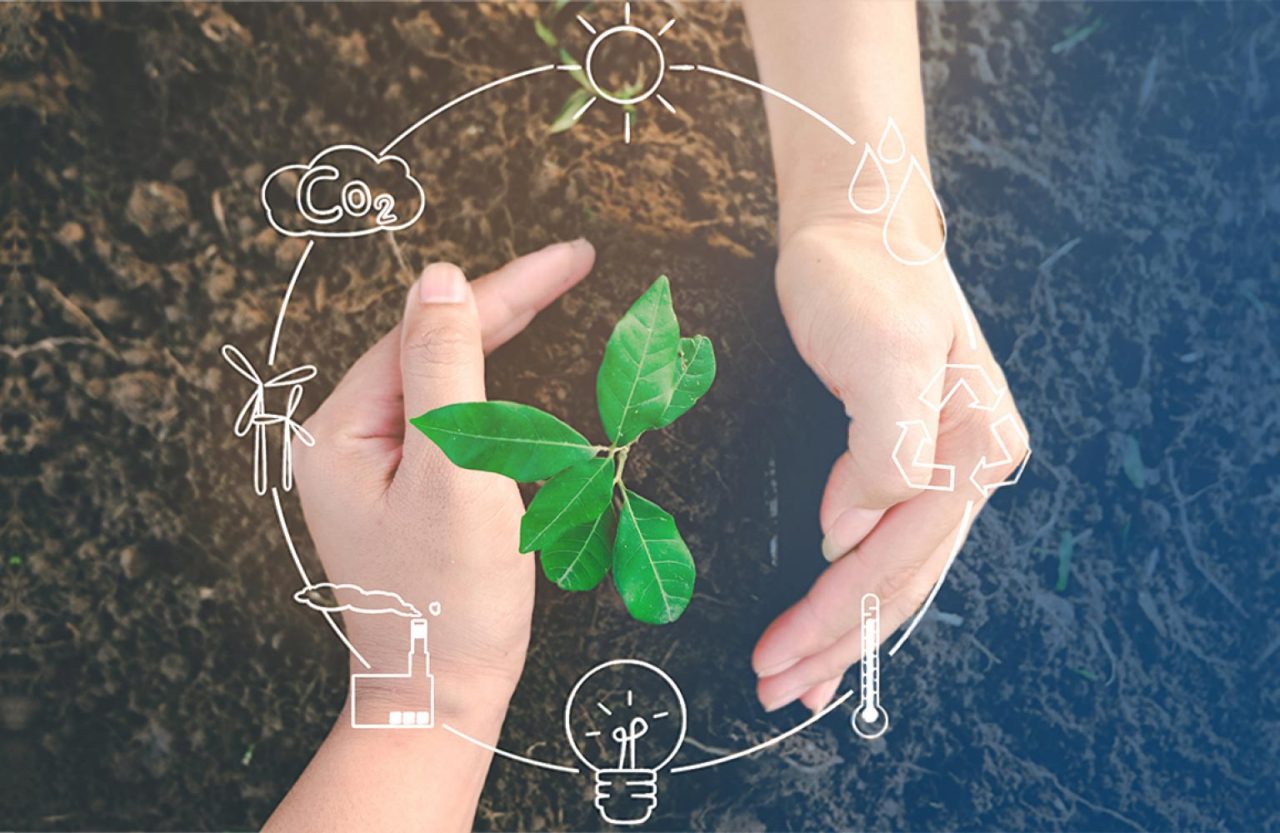“More“. We can summarize our modern world order in this word: More production, more consumption, more resource use, more waste… We construct our economic and social life as if there is no tomorrow, as if there are other worlds to go to. The world with a border is trying to tell us with more visible signs that we have to take care of it every day: The climate crisis, social inequality, the decline of inclusion and accessibility… However, we have a method to understand and control our impact on the world: Sustainability. Yes, we have been bringing the adjective sustainable before every word without exception for a long time, but how well do we really dominate this concept? What is sustainability? Why is it important? Let’s take a step-by-step review…
How can we define sustainability?
In fact, there is no single universally accepted definition of sustainability. But it is often defined as ‘meeting the needs of the present without compromising the ability of future generations to meet their own needs‘. It means being permanent both socially and ecologically while ensuring the continuity of production, diversity and consumption.
At this point, we also need to answer the question “What is sustainability not?” The most common misconception is to define sustainability with ecology alone. However, sustainability is a holistic approach that accepts that everything must be considered together to establish lasting prosperity. This brings us to the next question.
What topics does the concept of sustainability consist of?
Sustainability has different dimensions: economy, society and environment. So just adopting an environmentally friendly lifestyle is not synonymous with sustainability. It requires taking steps to include factors such as social equality, economic development and welfare into the equation and to bring all human activities into existence in balance. Shall we give an example?
Environmental protection: It focuses on protecting the integrity and flexibility of the ecosystem with steps such as reducing the carbon footprint, ensuring the sustainable use of resources in production, waste management, protecting biodiversity, saving energy and water, and recycling.
Economic development: It aims to ensure economic growth and increase welfare by protecting resources. It prioritizes concepts such as green investments, innovation and R&D, fair trade, sustainable finance, and circular economy.
Social development: It describes reaching a satisfactory and sustainable standard in all areas of life such as social justice, equal opportunity, inclusiveness, education, health, community awareness, and gender equality. On the other hand, they open the door to entrepreneurship projects that will create solutions to social problems.
All parts of the ecosystem, living or non-living (humans, plants, animals, microorganisms, natural resources, etc.) are indisputably interconnected and interact. Disruption in one link of the chain affects the whole system.
Why is sustainability important?
All parts of the ecosystem, living or non-living (humans, plants, animals, microorganisms, natural resources, etc.) are indisputably interconnected and interact. Disruption in one link of the chain affects the whole system.
Therefore, sustainability; guarantees the continuity of this chain, protects our ecosystem and natural resources, and increases our quality of life. It raises the bar in all fields, from health to education, from culture to social equality, guarantees prosperity and ensures the development of societies. Thanks to the rational use of resources, a more livable and safe world is created. In terms of business models, it ensures the long-term existence of companies and paves the way for more comprehensive development. So, what and where does such an essential and basic understanding correspond to in our lives?
